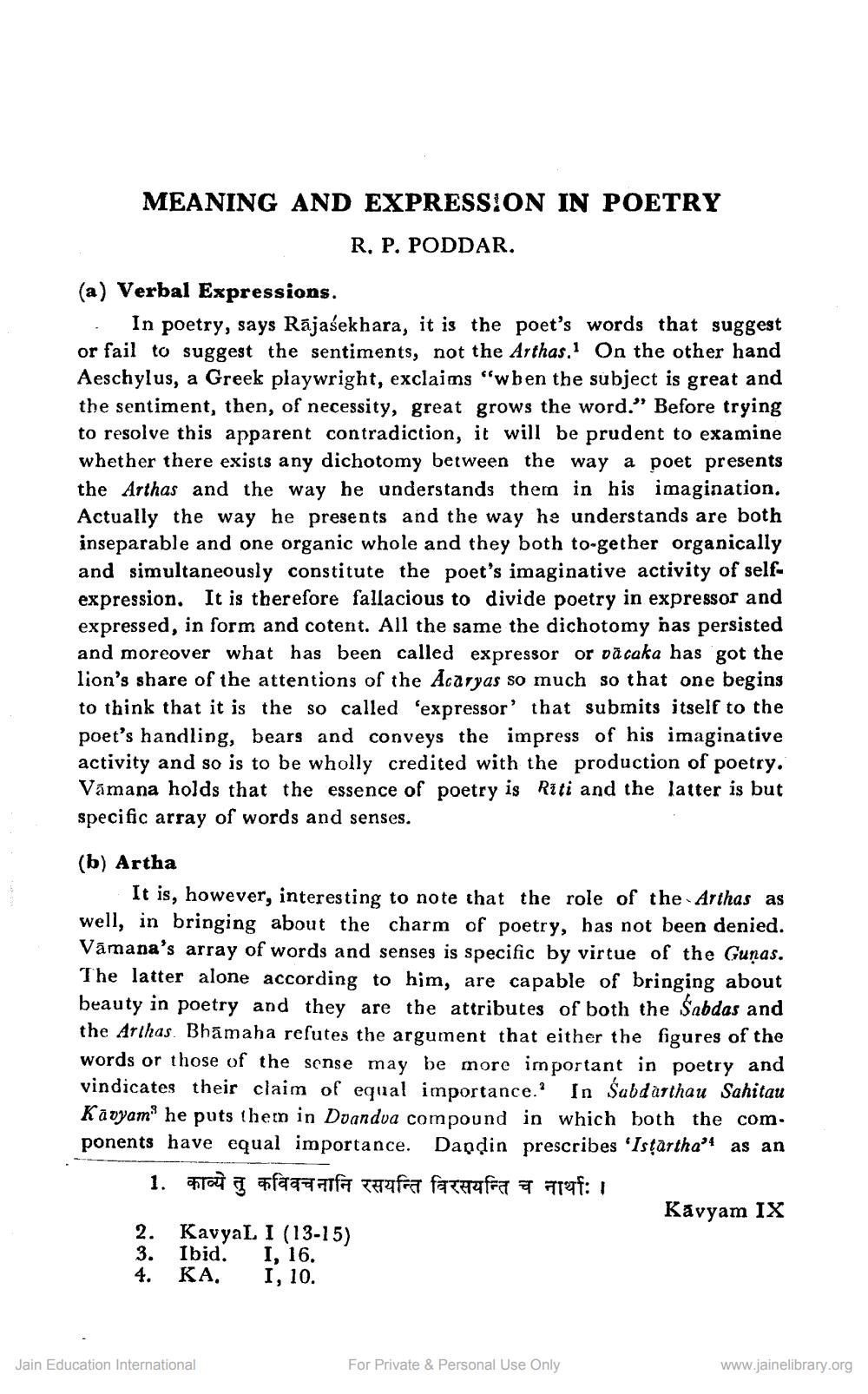________________
MEANING AND EXPRESSION IN POETRY
R. P. PODDAR. (a) Verbal Expressions.
In poetry, says Rājasekhara, it is the poet's words that suggest or fail to suggest the sentiments, not the Arthas. On the other hand Aeschylus, a Greek playwright, exclaims "wben the subject is great and the sentiment, then, of necessity, great grows the word.” Before trying to resolve this apparent contradiction, it will be prudent to examine whether there exists any dichotomy between the way a poet presents the Arthas and the way he understands them in his imagination. Actually the way he presents and the way he understands are both inseparable and one organic whole and they both to-gether organically and simultaneously constitute the poet's imaginative activity of selfexpression. It is therefore fallacious to divide poetry in expressor and expressed, in form and cotent. All the same the dichotomy has persisted and moreover what has been called expressor or dä сaka has got the lion's share of the attentions of the Acargas so much so that one begins to think that it is the so called 'expressor' that submits itself to the poet's handling, bears and conveys the impress of his imaginative activity and so is to be wholly credited with the production of poetry. Vamana holds that the essence of poetry is Riti and the latter is but specific array of words and senses.
(b) Artha
It is, however, interesting to note that the role of the Arthas as well, in bringing about the charm of poetry, has not been denied. Vāmana's array of words and senses is specific by virtue of the Guņas. The latter alone according to him, are capable of bringing about beauty in poetry and they are the attributes of both the Sabdas and the Arthas. Bhāmaha refutes the argument that either the figures of the words or those of the sense may be more important in poetry and vindicates their claim of equal importance. In Sabdarthau Sahitau Kavyam' he puts them in Duandva compound in which both the com. ponents have equal importance. Dapdin prescribes 'Isţarthaas an 1. gre I faqatata Tafa fazafa 2 7727f: 1
Kavyam IX 2. KavyaL I (13-15) 3. Ibid. I, 16. 4. KA, 1, 10.
Jain Education International
For Private & Personal Use Only
www.jainelibrary.org




